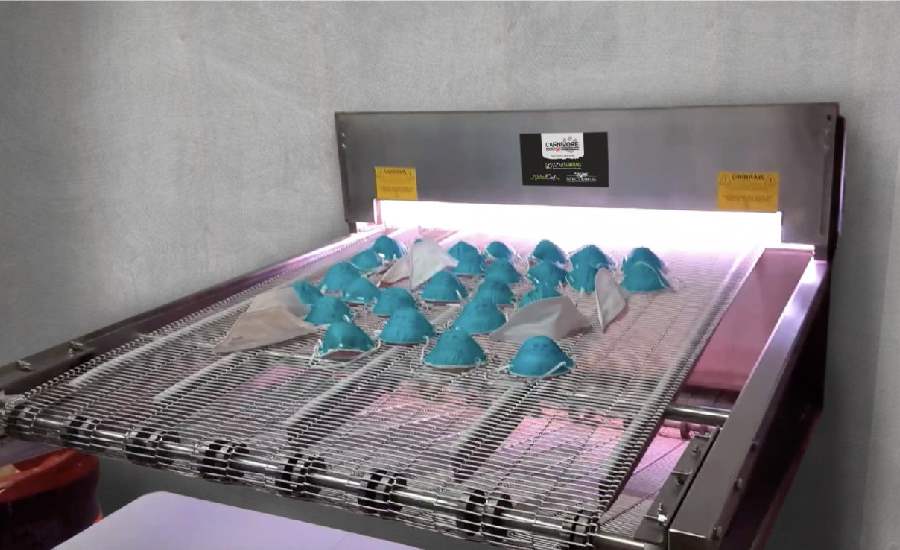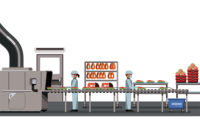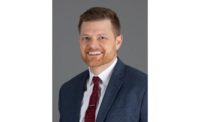Carnivore Meat lends a hand to frontline workers during pandemic

If you were to walk into Carnivore Meat Co.’s processing area, you would think it was a meat company like any other. There is grinding, dicing, blending, mixing and patty-making operations at the company’s three locations in Green Bay, Wis. It is a meat company, but its clientele is a very specific one.
“Carnivore Meat Company is essentially a meat shop for dogs and cats,” explains Lanny Viegut, the company’s CEO. “We have three brands: our flagship brand Vital Essentials, and our cat brand is called Vital Cat. Then we have a brand called Nature's Advantage.”
Carnivore produces frozen and freeze-dried pet food for all-meat diets. Each brand contains meat, organ meats and bone, with no additives, preservatives, grains, fruits or vegetables.
The company got its start in 2012, which lines up with the period in which people were becoming increasingly interested in natural or organic meats for their diets.
“That’s what we call humanization,” Viegut explains. “It's the pet parent thinking that their dog should eat well and have the same type of nutrition as they do.”
He points out that cats and dogs are naturally meat eaters, but many other types of pet foods are made of rendered products or grains. Viegut has heard from many clients whose animals have become healthier with an all-meat diet.
Like all other companies, Carnivore Meat has been impacted by the COVID-19 pandemic. Viegut says that it has made adjustments in its organization, allowing those who can to work from home and changing the behaviors of plant workers to minimize risk. Sales have been impacted somewhat because many of the company’s biggest markets are in states like California, New York and Washington that have been hit particularly hard by the virus.
In spite of the setbacks, Carnivore Meat has stepped up and lent its support to its Green Bay community, both financially and logistically. As reports of hospitals running out of medical supplies began to circulate, Viegut realized that his company could make a difference, using a UV machine that the company had purchased but not yet commissioned.
“That machine was intended so we would be able to put through equipment, instruments, grinding plates, grinding blades and other meat-handling tools. We could also, if we chose, we could actually put meat products through to help ensure food safety and bolster our food safety system,” he says.
The machine also could, he realized, be used to sterilize masks so they can be reused. Within a week, the UV machine had been set up in a clean room environment with a wall over it. Used masks are received, run through the UV machine and placed in sterile bags to be sent back to their owners.
Using this process, the company says that a single mask may be sterilized up to five times through the UV machine, and full utilization of the machine’s capacity could yield up to 1.4 million clean masks per week. The sterilization machine also lessens the need for new masks and could potentially result in cost savings of $2 million per week.
Along with helping hospitals on the front line, Viegut has found numerous businesses that need the help, including nursing homes, funeral homes and hospice centers. He was even contacted by an IT service provider that sends its techs to homes and businesses for troubleshooting.
Carnivore has also made donations to the Green Bay community, and Viegut has challenged other businesses throughout the country to do the same. He says a friend who owns a trucking firm inspired him. That businessman pledged to donate $100,000 to the communities where his business operates. Viegut decided to make a $100,000 donation to services in Green Bay, notably shelters and food banks.
“Given the coronavirus and the closures of so many small businesses locally, there are probably people standing in line somewhere at a food bank that have never been there before,” he explains, “because right now they just don't have a choice, they have no revenue, no income.”
Viegut issued the Vital Relief Challenge, asking other organizations, CEOs and owners across the country to give back to their communities as well. The response has been extremely satisfying.
“We've gotten emails and LinkedIn notices and Facebook notices and some phone calls from different people across the country who said, ‘Thank you for giving me a nudge,’” he says.
By sharing his experiences, Viegut has also heard from companies with UV machines of their own. He has spoken with them about how they can use the equipment to help their local communities as well. When he spoke with his Senator about the UV operation, he was told about the intangible benefits such an operation provides as well.
“[He said] this is about hope and optimism and giving America something to grasp hold of and something to look forward to,” Viegut adds.
Looking for a reprint of this article?
From high-res PDFs to custom plaques, order your copy today!






